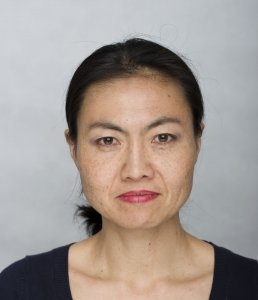Presented By: Eisenberg Institute for Historical Studies
EIHS Lecture: "Landscape and Longing: On the Perils of Gazing from a Height in Traditional China"
Curie Virág, University of Toronto

A familiar trope in the Chinese literary tradition is that of climbing to a height, gazing out, and experiencing an outpouring of sadness, longing, and nostalgia. The earliest traces of this trope can be found in the Songs of Chu, a poetry anthology dating from the 3rd century BC, and it would remain a recurring theme in poetic writings thereafter. This theme of “gazing from a height” has been explained both psychologically and as a symptom of the particularities of the traditional Chinese textual imagination. But it also bears examination as an aspect of the complex unfolding of other histories–those of visual perception, emotions, cognition, and power. In her talk Professor Virág will discuss how these histories were interwoven, drawing some conclusions about what the emotions bound up with seeing–and with failing to see–might reveal about the contentious domain of visual authority in traditional China.
Curie Virág is an assistant professor in the Department of East Asian Studies at the University of Toronto. An intellectual historian of premodern China, she focuses on the history of ethics, moral psychology, and epistemology in the Warring States (4th-3rd centuries BCE) and Tang-Song (7th-12th centuries CE) periods. Professor Virág's current book projects cover the evolution of thinking about emotions in premodern China from roughly 400 BCE to 1200 CE. "The Emotions in Early Chinese Philosophy," which deals with the early phase of this history, will be completed at the end of 2015. The sequel to this study, covering the period of early empire to 1200, is in preparation. In her work on emotions, and in more recent investigations–which focus on conceptions of the self and the human, models of cognition, and the theory and practice of landscapes–she has been exploring how past ways of thinking about human attributes, faculties, and capacities are interwoven with ideas about the workings of the physical world.
Free and open to the public.
This lecture is part of the Thursday Series of the Eisenberg Institute for Historical Studies. It is made possible by a generous contribution from Kenneth and Frances Aftel Eisenberg.
Curie Virág is an assistant professor in the Department of East Asian Studies at the University of Toronto. An intellectual historian of premodern China, she focuses on the history of ethics, moral psychology, and epistemology in the Warring States (4th-3rd centuries BCE) and Tang-Song (7th-12th centuries CE) periods. Professor Virág's current book projects cover the evolution of thinking about emotions in premodern China from roughly 400 BCE to 1200 CE. "The Emotions in Early Chinese Philosophy," which deals with the early phase of this history, will be completed at the end of 2015. The sequel to this study, covering the period of early empire to 1200, is in preparation. In her work on emotions, and in more recent investigations–which focus on conceptions of the self and the human, models of cognition, and the theory and practice of landscapes–she has been exploring how past ways of thinking about human attributes, faculties, and capacities are interwoven with ideas about the workings of the physical world.
Free and open to the public.
This lecture is part of the Thursday Series of the Eisenberg Institute for Historical Studies. It is made possible by a generous contribution from Kenneth and Frances Aftel Eisenberg.
Explore Similar Events
-
Loading Similar Events...
